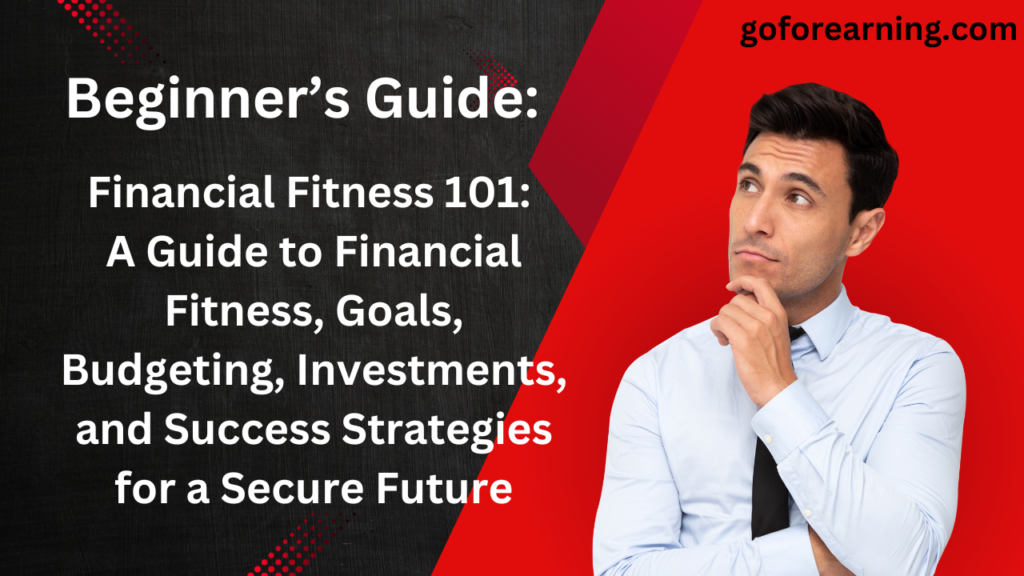While no one can agree on a single set of “17 principles of creating wealth,” different writers and experts may talk about different ways to get rich. Here is a general list of ideas that are often talked about when talking about making money:
Setting Clear Goals

- Make your short- and long-term financial goals very clear.
- Break down big goals into smaller steps that you can actually reach.
- Review your goals often and make changes as needed as things change.
Financial Education

- Keep up with changes in the economy, business possibilities, and your own money.
- Go to classes, read books, and get your money advice from reliable sources.
- Learn the basics of making a budget, saving, and dealing with danger.
Making a budget
- Make an in-depth budget that lists your income, spending, and funds.
- Find places where costs could be cut without affecting important needs.
- Track how much you spend and save with planning tools and apps.
Savings

- Set up an emergency fund to pay for costs that come up out of the blue.
- Save a set amount of your pay every month, and if you can, set it up to happen automatically.
- Check out different ways to save money, like stock accounts or high-yield savings accounts.
Investing
- Spread your money around different types of assets, like stocks, bonds, real estate, and so on.
- Know how much danger you are willing to take and how long you want to spend for.
- Review and adjust your investments on a regular basis.
Interest that builds up
- To get the most out of growth over time, start saving early.
- Put earnings and interest back into your business to make it grow faster.
- Wait it out, and let the magic of compound interest work for you over time.
Starting a business
- Find holes in the market and look for ways to start your own business.
- Make a business plan and figure out if your idea can work.
- Get ready for the difficulties of being a business and keep going.
Networking
- Make a strong network of professionals in and outside of your field.
- Go to events in your field, join professional groups, and use the Internet.
- Networking can help you find business partners, teachers, and other useful people.
Follow through and hard work
- Know that getting rich usually takes a lot of hard work and commitment over a long period of time.
- Keep improving your skills and stay dedicated to growing as a person and in your career.
- When it comes to money, you have to be ready to go the extra mile.
Dealing with risks
- Spread out your investments to lower your risk.
- Check your risk level often and make changes as needed based on new information.
- Think about getting insurance to protect yourself from unplanned events.
Ability to adapt
- Keep up with how the business and market are changing.
- You should be ready to change your financial plans when new chances or problems come up.
- Recognize that you’ll always be growing and learning.
New ideas
- Look for business or investment options that are new and different.
- Keep up with changes in your business and new technologies.
- Develop a way of thought that helps you solve problems creatively and think outside the box.
Mindset and Positivity
- Develop an upbeat attitude to deal with problems and failures.
- Have faith in your ability to get through tough times and make money.
- Focus on the progress you’ve made and be thankful for what you have.
Being frugal
- Adopt a way of life that involves careful spending.
- To figure out which costs are most important, separate your needs from your wants.
- The money you don’t spend right away should be saved and invested.
Learning all the time
- Stay interested and look for new things to learn and different points of view.
- Go to lectures, workshops, and talks that are related to your financial goals.
- Join online business groups and discussion boards to share your thoughts and ideas.
Setting rules
- Follow your budget and plan for your money.
- Don’t give in to the urge to spend or invest without thinking.
- Check in on your work often and make changes as needed.
Being kind
- Give back to the community by helping or giving money to good causes.
- Know how your money affects other people, and think about investing in ways that are practical and moral.
- Develop a sense of social duty as you make money.
Remember that getting rich is a process that is unique to each person. It’s important to check in on your finances often, make changes to your plans, and get professional help when you need it. Using these ideas together in a way that works for you can help you be financially successful in the long run.
FAQs:
The 17 principles cover a range of financial strategies, including goal-setting, financial education, budgeting, investing, and more. They provide a comprehensive guide for individuals looking to build wealth over time. Start by evaluating your short-term and long-term aspirations. Divide them into specific, measurable, achievable, relevant, and time-bound (SMART) goals. Regularly reevaluate and adjust as needed. Financial education is important for making informed decisions about budgeting, investing, and managing money. It empowers individuals to deal with the complexities of personal finance and make strategic choices. Budgeting helps individuals track income, manage expenses, and allocate money for savings and investments. It provides a roadmap to financial success by ensuring that money is used efficiently. Diversification means putting money into a lot of different types of assets to lower your risk. Consult a financial advisor to create a balanced portfolio that suits your risk tolerance and financial goals. Compound interest allows money to grow faster over time. It involves earning interest not only on the initial investment but also on the accumulated interest, thereby accelerating wealth accumulation. Assess your comfort level with risk by considering factors such as financial goals, time horizon, and personal preferences. A financial advisor can help you determine the appropriate level of risk for your investment strategy. Financial conditions and personal circumstances may change. Being adaptable allows individuals to adjust their financial strategies, take advantage of new opportunities, and respond effectively to challenges. Develop an entrepreneurial mindset by identifying business opportunities, creating a solid business plan, and adopting a willingness to take calculated risks. Learn from both successes and failures. Networking opens doors to valuable connections, opportunities and collaboration. Building a strong professional network can provide insight, guidance, and potential business ventures. A positive mindset helps individuals overcome challenges, remain resilient during setbacks, and stay focused on long-term goals. It promotes a creative approach to financial decision making. Continuous learning keeps individuals informed about market trends, new investment opportunities, and evolving financial strategies. Staying curious and adaptable is essential to long-term financial success. Frugality involves spending wisely and prioritizing essential expenses. Differentiate between needs and wants and look for cost-effective options without compromising the quality of your life. Practice generosity by giving back to the community through charitable contributions or volunteering. Consider the social impact of your wealth and explore sustainable and ethical investing practices. Review your financial plan regularly, track your progress, and make adjustments as needed. Develop discipline by resisting impulsive financial decisions and staying committed to your long-term goals.Q: What are the 17 principles of wealth creation?
Q: How do I set my financial goals?
Q: What role does financial education play in wealth creation?
Q: Why is budgeting considered a key principle?
Q: How can I effectively diversify my investments?
Q: What is the importance of compound interest in wealth creation?
Q: How can I assess my risk tolerance in investing?
Q: Why is adaptability important in wealth creation?
Q: How can I foster an entrepreneurial mindset for wealth creation?
Q: Why is networking important in wealth creation?
Q: How does a positive mindset contribute to wealth creation?
Q: What is the role of continuous learning in wealth creation?
Q: How can I practice frugality without compromising quality of life?
Q: What steps can I take to incorporate generosity into wealth creation?
Q: How do I stay disciplined while following the 17 Principles?





